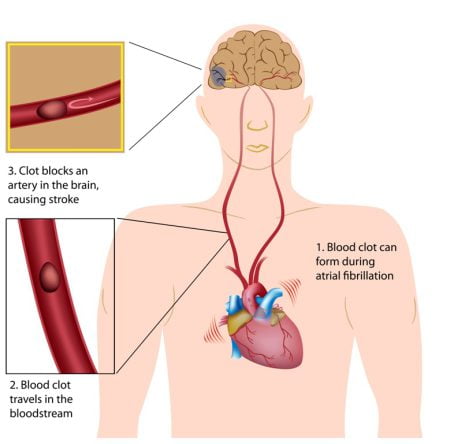Key Takeaways
- Learn about the essential elements needed in a supportive environment for addiction recovery.
- Discover strategies to create a nurturing space that encourages healing.
- Understand the importance of community and professional involvement in recovery.
Table of Contents
- Introduction to Addiction Recovery
- The Power of a Supportive Environment
- Essential Elements of a Healing Space
- Role of Family and Friends
- Community Resources and Support
- Professional Help: Therapists and Counselors
- Self-Care and Personal Growth
Fostering a supportive environment is vital for addiction recovery. Building trust, offering empathy, and encouraging open communication create a strong foundation. Providing resources, promoting healthy routines, and celebrating milestones empower individuals on their journey. A compassionate and understanding network is crucial for long-term recovery and personal growth.
Introduction to Addiction Recovery
Overcoming addiction is a personal journey involving physical, mental, and emotional transformations. It’s crucial to align recovery efforts with the surrounding environment, where emotional and psychological support is essential. Understanding the journey, including setbacks and triumphs, can empower individuals and their supporters to create a supportive environment for sustainable recovery. A nurturing environment fosters healing and growth, ensuring a successful recovery. Facilities like Heartwood Recovery underscore the immense impact of a supportive backdrop in achieving long-term sobriety. To lower relapse rates and improve general well-being, this article examines the significance of establishing a supportive atmosphere for those seeking or assisting in recovery.
The Power of a Supportive Environment
A positive and nurturing environment can serve as a powerful catalyst for recovery, providing individuals with the safety and encouragement needed to face challenges head-on. Environments that foster care, empathy, and understanding can empower individuals to confront their addiction with confidence and persistence. For example, fostering an atmosphere of trust enables people to be open and vulnerable about their difficulties, which is a critical first step in the healing process. An emotionally and physically supportive environment can enable successful rehabilitation and a return to healthy living, impacting the individual and their surrounding community.
Essential Elements of a Healing Space
A healing space is characterized by emotional safety, openness, and inclusivity. These fundamental principles encourage individuals to confront their addiction without fear of judgment or shame. A supportive environment cultivates an atmosphere where honest communication is welcomed, enabling individuals to express themselves freely and seek help when needed. Research from supportive environments highlights these as key factors in facilitating successful recovery outcomes. Furthermore, having access to calming spaces, such as gardens or serene rooms, can help individuals find peace and focus on their inner healing journey.
Role of Family and Friends
The involvement of family and friends is invaluable in a person’s recovery journey. Supportive networks can create a buffer against setbacks, offering understanding, encouragement, and strength during difficult times. By actively listening, providing helpful advice, and keeping the lines of communication open, friends and family can play a crucial role. A non-judgmental attitude from loved ones can significantly ease recovery, allowing the individual to feel supported and understood. These relationships can motivate individuals to stay committed to their recovery goals by fostering a sense of belonging and acceptance.
Community Resources and Support
Access to local counseling services and support groups can significantly improve recovery efforts. These networks provide a sense of belonging and shared experiences, creating a community of individuals who understand the struggles associated with addiction. They frequently offer controlled settings where people can benefit from one another’s knowledge and find strength in their everyday experiences. Exploring available community resources can lead to discovering invaluable allies in the recovery journey. These resources often offer guidance through workshops, mentorship programs, and group therapy sessions, which are crucial in reinforcing positive behavior and accountability.
Professional Help: Therapists and Counselors
Engaging with therapists and counselors provides structured guidance and professional support, which are critical for a successful recovery journey. Skilled professionals offer a non-judgmental space where individuals can explore their motivations for using substances and work through the complexities of addiction. These experts help uncover the underlying causes of addiction, including psychological, social, and physical factors, thus offering personalized strategies that align with each individual’s needs. Regular therapy sessions can help maintain motivation by providing tools for managing life’s pressures, fostering better-coping mechanisms, and reinforcing a commitment to sobriety. Therapeutic support is a cornerstone in reshaping thought patterns and promoting a healthier lifestyle.
Self-Care and Personal Growth
Recovery encompasses continuous self-care and personal development, vital for achieving sustained well-being. Incorporating activities promoting mental health and self-reflection, such as engaging in hobbies, journaling, participating in physical activities, and practicing mindfulness, can bolster an individual’s journey. Such activities help manage stress and support the redevelopment of a positive self-image. A proactive approach to self-care encourages positive change and resilience, allowing individuals to tackle new challenges head-on while celebrating their progress and growth. People can take control of their healing and personal development by developing behaviors that increase their sense of autonomy and self-worth.







